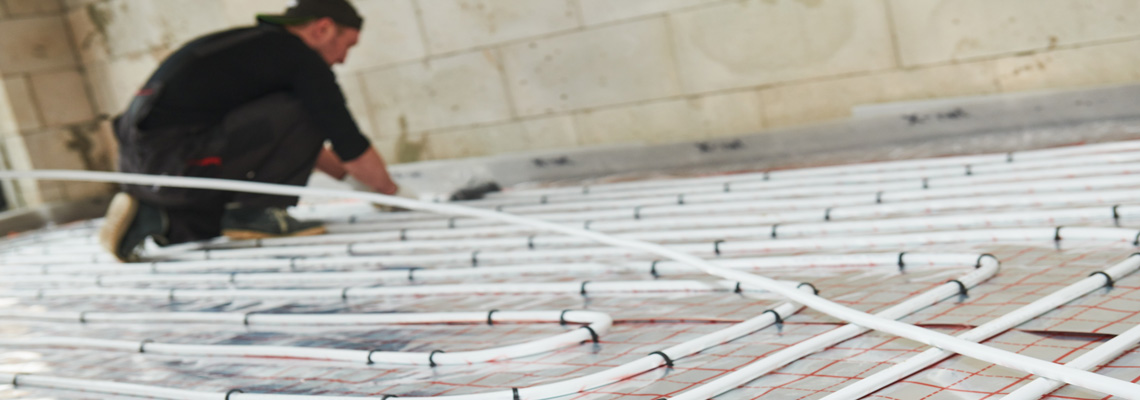The popularity of underfloor heating is on the up.
By 2025 underfloor heating installations are expected to rise by up to 6%. An increase being pushed on by homeowners preferring to do-up their homes rather than move.
And from 2025, new builds are likely to be kitted out with heat pumps, a heating system perfect for underfloor heating.
Why is underfloor heating on the rise?
Underfloor heating (UFH) is seen as rather luxurious. It’s hidden and the idea of walking on a warm floor is appealing to many.
Plus, a recent YouGov survey found that 63% of homeowners are choosing to do-up their homes rather than move out. Giving them the chance to install UFH.
Turning from radiators to UFH heating has many advantages for homeowners:
- Comfort: All corners of the room are heated up evenly
- Lower heating bills: Can be heated to a lower temperature than radiators
- More space: Without radiators on the wall, the room will feel larger
- Healthier: UFH doesn’t blow dust around the room – great for anyone with breathing troubles
Like UFH, heat pumps are also gaining popularity. And these heating systems go hand in hand.
Heat pumps heat water to a lower temperature than boilers. So they’re more effective when paired with large radiators or UFH.
As more homeowners turn to renewable heating systems, the demand for UFH will continue to go up.
What does this mean for heating engineers?
There’s a real opportunity here for heating engineers to earn more work.
Homeowner demand for UFH is higher than ever and will only continue to grow. Especially as more people turn to heat pumps.
Plus, as new-build homes won’t be fitted with boilers from 2025, it’s likely that heat pumps will take their place. And UFH is the perfect partner for a heat pump.
So not only could you get more in existing homes but new ones too.
What do I need to install underfloor heating?
Underfloor heating installation courses are open to heating engineers and plumbers with NVQ or SVQ (level two). Two years of working experience is also acceptable. Experience working with heat loss and hydraulic heating systems may also be needed.
Once qualified, you won’t be able to complete the installation of an underfloor heating system alone. After fitting an underfloor heating system – both wet and electric – you’ll need to call on an electrician to connect it to the electricity supply.
What advice should I give to homeowners interested in UFH?
Fitting underfloor heating is far more disruptive than radiators. Especially in older properties. Costly too.
So for homeowners in older properties, it may not be the best option. Even with any savings made on heating bills, it could be hard to make back that initial investment.
It can also make positioning large or heavy furniture a challenge too. In some cases, they may even have to be removed altogether.
Wet or dry underfloor heating?
Underfloor heating can be either dry (electric) or wet.
Dry underfloor heating systems heat the room using electricity. They’re often far quicker to install than wet heating systems and can be done at a lower cost. An electric UFH system is the perfect choice for renovation projects or for heating a single room. However, the bad news for the homeowner is that electricity is an expensive way to heat a home.
A wet underfloor heating system is more complicated to fit and can take more time. It will also be a more costly installation. On the plus side, they have far lower running costs. For new-build projects, wet underfloor heating is the go-to system.
Where can I find homeowners who need a heating engineer?
Over 4 million people visit Boiler Guide every year. And many ask us to connect them with local heating engineers.
They may need anything from underfloor heating, to a boiler replacement right through to a completely new central heating system.
Whenever a customer in your area asks us for quotes, we can let you know. All for free.
Follow our simple sign-up process and you’ll be able to take a look at all the jobs available in your area. Buy as many or as few as you like. You’re in control.





